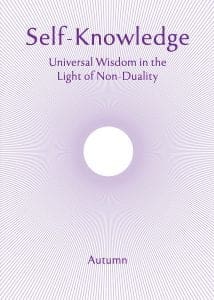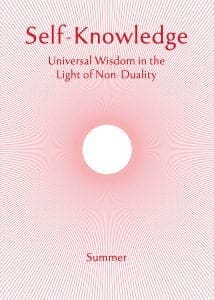Posts Tagged ‘Members’
The Shvetashvatara Upanishad
The Shvetashvatara Upanishad combines the deepest devotion with the highest knowledge. Human beings are both intellectual and emotional, and both these aspects of our nature need to be trained and transformed. Emotion and intellect, heart and mind, can be united creatively in the same inner quest. When this happens, a great power is awakened within…
Read MoreAids to Enlightenment
There are ways and means by which our mind can make progress towards the great goal of enlightenment. Enlightenment, or illumination, is called the great goal because it leads to lasting fulfilment. It is also great because it reveals the greatness hidden in every human heart. In traditional schools of non-duality, this goal is always…
Read MoreLiberation and Action
The Thousand Teachings of Shankara, Metrical Part, Chapter One Shankara, the great philosopher-sage who formulated the non-dual teachings, says in many of his writings that a seeker of liberation should give up action. Taken out of context, this could be misunderstood. The essential idea is that no action can result directly in liberation. The Sanskrit…
Read MoreListen Carefully
A discourse by Hari Prasad Shastri, given September 24th, 1950 O Varuna, Thou art the object of our worship. Remove our shackles—physical, mental, and those caused by the unseen agencies—because the shackles of the world in the form of infatuation lead to the degradation of the soul. O eternal God, enable us to obey Thy…
Read MoreSeeing Ourselves in a New Light
Meditation helps us to acquire that inner peace and serenity which gives, not necessarily a life of joy, but joy in life. Such joy is available and close at hand. The non-dual teaching is that our innermost Self, our ‘I’, when truly understood, is the source of joy. Therefore joy is to be sought within…
Read MoreBhakti Yoga – the Way of Devotion
From a talk by Hari Prasad Shastri given May 7th, 1943 Mankind is a detail in this most wonderful universe where every detail is profound and defies human comprehension. The universe is a book, so to say, written by the august Author, the Lord Omniscient and Omnipresent, and each and every word of this book…
Read MoreThe Rose and the Water
The mystical tradition is that the Supreme Consciousness, which is transcendent, beyond time and space and causation, could never be known or express itself unless it had apparently created the world of manifestation, of names and forms. Just as a face can never see itself unless it has a mirror to look into, so the…
Read MoreNo Friends or Enemies
The Thousand Teachings of Shankara, Prose Part, Section Three We want to be free. What is freedom and how to achieve it? True freedom is more than political or economic freedom. It is freedom from all the limitations imposed on us by the workings of the law of cause and effect. Ultimate freedom means being…
Read MoreIs Vedanta Dogmatic?
A CRITICISM sometimes levelled against the Vedanta (the conclusion of the Vedas—the Upanishadic non-dual teachings) is that it is dogmatic, since its starting-point is the acceptance of the Vedic texts, and the use of reason is confined to elucidating their meaning. At the beginning of his commentary on the Brahma Sutras, Shri Shankara remarks: The…
Read MoreSelf-Forgetfulness
One of the phrases that appeared in the 1960s was ‘It blew my mind’. It was particularly associated with the psychological effects of hallucinogenic drugs. The phrase is still used, but its meaning has softened. Nowadays, we may hear it applied to any experience that makes a deep, pleasant or powerful impression on our mind,…
Read More


